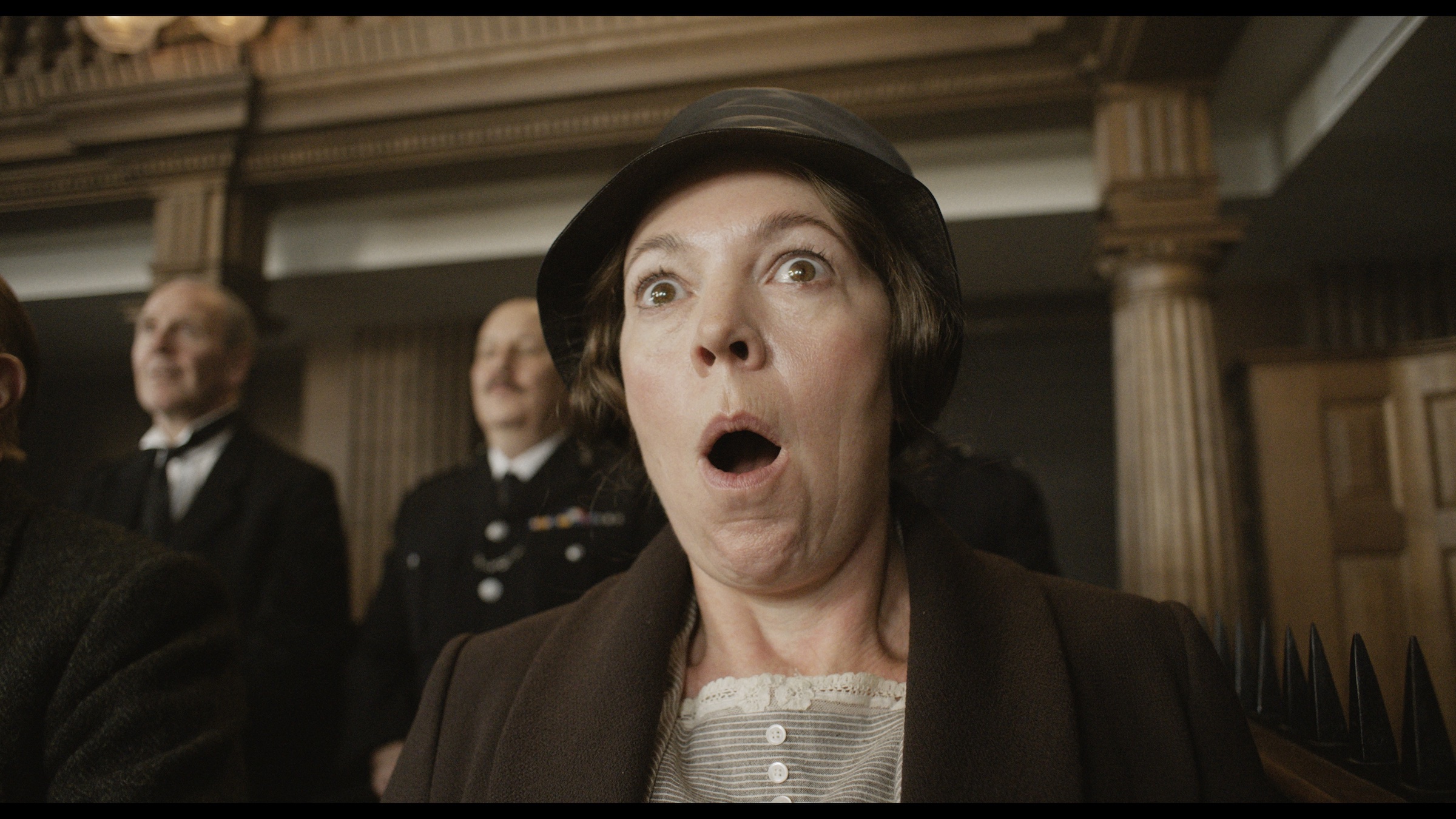Thirty, 20, even 10 years ago, in any given week your local theater or multiplex would offer a variety of movies designed to serve different audiences: there were things teenagers would go off to see on their own, G-rated amusements you could take the kids to, date-night movies worth paying a babysitter for. And then there were movies designed to serve an “older” audience, however you define that: pictures, often British imports, that served up a cozy, nonthreatening vibe while also being just a little saucy—think Calendar Girls or The Best Exotic Marigold Hotel. It was easy to sneer at those movies, but they often served their intended purpose ably, and they cleared space for plenty of actors—like Helen Mirren, Tom Wilkinson, and Maggie Smith—to shine rather than fade into the woodwork as they aged.
We’re still getting those cozy entertainments, but there are fewer of them, and their target audience often prefers to watch them at home rather than trekking out to theaters—a trend that only makes these films feel more inconsequential and throwaway than they did before. Wicked Little Letters, directed by Thea Sharrock and written by Jonny Sweet, may be an attempt to correct that trend. Olivia Colman plays Littlehampton spinster Edith Swan, an upstanding religious lady who’s shocked—shocked!—when she begins receiving letters filled with insults spelled out in elaborate, inventive obscenities. (In one of the more printable examples, she's accused of being a “foxy ass piss country whore.”)
Edith and her domineering crab-apple father, Edward (Timothy Spall), reach the certain conclusion that the letters are coming from their neighbor, Rose Gooding (Jessie Buckley), a woman of rather coarse manners who’d moved to their town from Ireland at the end of the First World War—and who had, it turns out, borne a child out of wedlock. Because of the stark difference in Rose and Edith's social standing, it’s all too easy for the authorities to believe that Rose is the culprit. She’s thrown in jail and left to await her trial. Only Officer Gladys Moss (Anjana Vasan), a sympathetic “woman police officer,” as she’s called repeatedly in the film—her gender certainly would have been a novelty in the 1920s—doubts Rose’s guilt, though it takes her forever to uncover the truth.
Read more: The 100 Best Movies of the Past 10 Decades

Aside from the fact that Wicked Little Letters is based on a true story, you can probably guess who the guilty party is: the movie tips the audience off early on, with its jaunty conspiratorial winks and nudges. Sharrock (Me Before You, The One and Only Ivan) is working with some great actors here, but none are at their best. Spall, who gave the performance of a lifetime a decade ago, as the cantankerous painter J.M.W. Turner in Mike Leigh’s Mr. Turner, is treated as your standard apoplectic father figure; the camera closes in tight to make sure we clock every one of his assorted grimaces. Colman’s Edith shifts between being dithery and calculating, but she may as well be spelling out her feelings in semaphore. Edith loves the attention she gets from the scandal, collecting multiple copies of the newspaper stories that put her upstanding piety in the best light. But Sharrock fixates so steadily on Edith’s preening that it becomes exhausting, sapping the story of any prickly energy it might have had.
As the Irish outsider—who, as Edward Swan once puts it, “marches around on the Sabbath with her feet as bare as goose eggs,” whatever that means—Buckley may fare the worst. Rose’s language and manner are bawdy and zesty, but gosh, how she loves her kid! When the cops chase after her, she pauses to moon them—she’s clearly the neighborhood’s fun mom. When she takes the stand in court, she taunts the judge and barristers as if she were playing Liza Doolittle in a community-theater production of My Fair Lady; her earthiness achieves the same level of dullness as Edith’s prissy sanctimony. It seems almost incomprehensible that she and Colman played two versions of the same character in Maggie Gyllenhaal’s The Lost Daughter only a few years ago, both giving terrific, nuanced performances.
There’s no room for nuance in Wicked Little Letters, but there is plenty of spicy, explicit language; the writer of these invective-filled missives certainly did not hold back. Yet the movie seems to have been designed for people who have never used, let alone heard, curse words before—the score includes lots of jaunty little melodic cues to let us know that we’re supposed to laugh in shock at such wickedness, not disapprove of it. With all that permission-granting going on, Wicked Little Letters isn’t even cathartic. It waves wanly at some deeper ideas, chiefly the notion that repressed women will find some way to act out. But from the beginning, it tells us what to think and feel, and alerts us, with the alacrity of a siren, when it’s time to titter in awed disbelief. It may have been conceived as the kind of classy-but-ribald entertainment that might lure older moviegoers back to theaters. But insulting their intelligence probably isn’t the way to go.
More Must-Reads from TIME
- Caitlin Clark Is TIME's 2024 Athlete of the Year
- Where Trump 2.0 Will Differ From 1.0
- Is Intermittent Fasting Good or Bad for You?
- The 100 Must-Read Books of 2024
- Column: If Optimism Feels Ridiculous Now, Try Hope
- The Future of Climate Action Is Trade Policy
- FX’s Say Nothing Is the Must-Watch Political Thriller of 2024
- Merle Bombardieri Is Helping People Make the Baby Decision
Contact us at letters@time.com